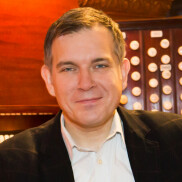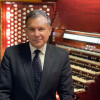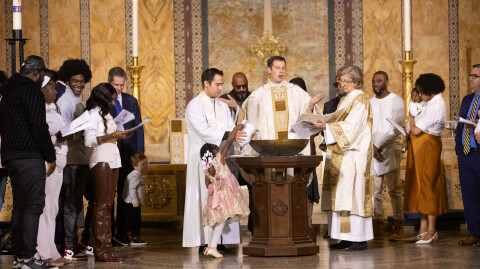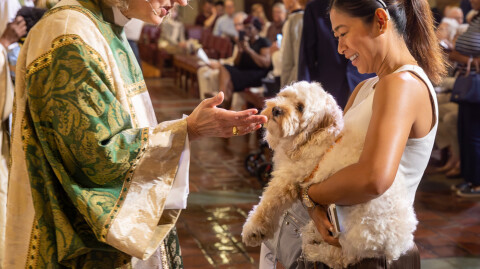 In connection with this Sunday’s Forum with Alex Ross speaking about Twentieth-century sacred music, our 11 am service will be A Choral Feast featuring all twentieth-century choral and organ repertoire and hymnody.
In connection with this Sunday’s Forum with Alex Ross speaking about Twentieth-century sacred music, our 11 am service will be A Choral Feast featuring all twentieth-century choral and organ repertoire and hymnody.
The hymnody includes one of the finest additions to The Hymnal 1982: “We the Lord’s people, heart and voice uniting.” The music was composed by Richard Dirksen, whose centenary we celebrate this year, and who served the Washington National Cathedral as Organist and Choirmaster from 1977-1988. During the 1960’s and 70’s, “The Lord’s People in the Lord’s House on the Lord’s Day for the Lord’s Service” was a saying often quoted in the Church of England and used as a teaching device to try to express succinctly the essence of Christian liturgy.
We will also sing “Come and seek the ways of wisdom,” words of Ruth Duck, sung to the wonderful hymn tune Julion by New York City composer David Hurd. The final hymn, echoing not only the words of the Gospel, but also of the spirit of the service, is “When in our music God is glorified,” sung to a favorite tune by Dublin-born composer Charles Villiers Stanford.
The choral repertoire is centered around Ralph Vaughan Williams’s masterpiece for unaccompanied double choir and soloists, Mass in G Minor. The Mass was composed exactly 100 years ago and is strongly influenced by music of the Tudor Period and English folk song. Vaughan Williams’s oeuvre marked a decisive break in British music from the German-dominated style of his predecessors and this is the first substantial, unaccompanied setting written in a distinctly English idiom since the time of William Byrd in the sixteenth century.
St. Bartholomew’s Choir will also sing Vox Dei (the Voice of God), Philip Wilby’s atmospheric and ethereal setting for double-choir of a text by Julian of Norwich. Julian wrote the best-known surviving book in the English language written by a mystic, Revelations of Divine Love, which is also the first book written in English by a known woman author.
Rounding out the choral repertoire is O Sacrum Convivium, one of the best-known works of Olivier Messiaen, French organist and ornithologist, and one of the major composers of the 20th century. The Psalm appointed for the day will be chanted to an Anglican chant by Benjamin Hutto, who directed choral activities at Washington’s St. Alban’s School for boys (whose alumni include the Rev. Peter Thompson and his forum guest, Alex Ross).
The organ music includes Berceuse by Germaine Tailleferre. Tailleferre was one of Les Six, a group of six young composers (five of them French, one Swiss) whose music is often heard as a reaction against both Wagner, as well as the impressionism of Debussy and Ravel. The postlude is Olivier Messiaen’s Joie et clarté des Corps Glorieux (“Joy and brightness of the heavenly bodies”), inspired by Matthew 13:43, “Then the righteous will shine like the sun in the kingdom of their father.”
Paolo Bordignon
Organist and Choirmaster



